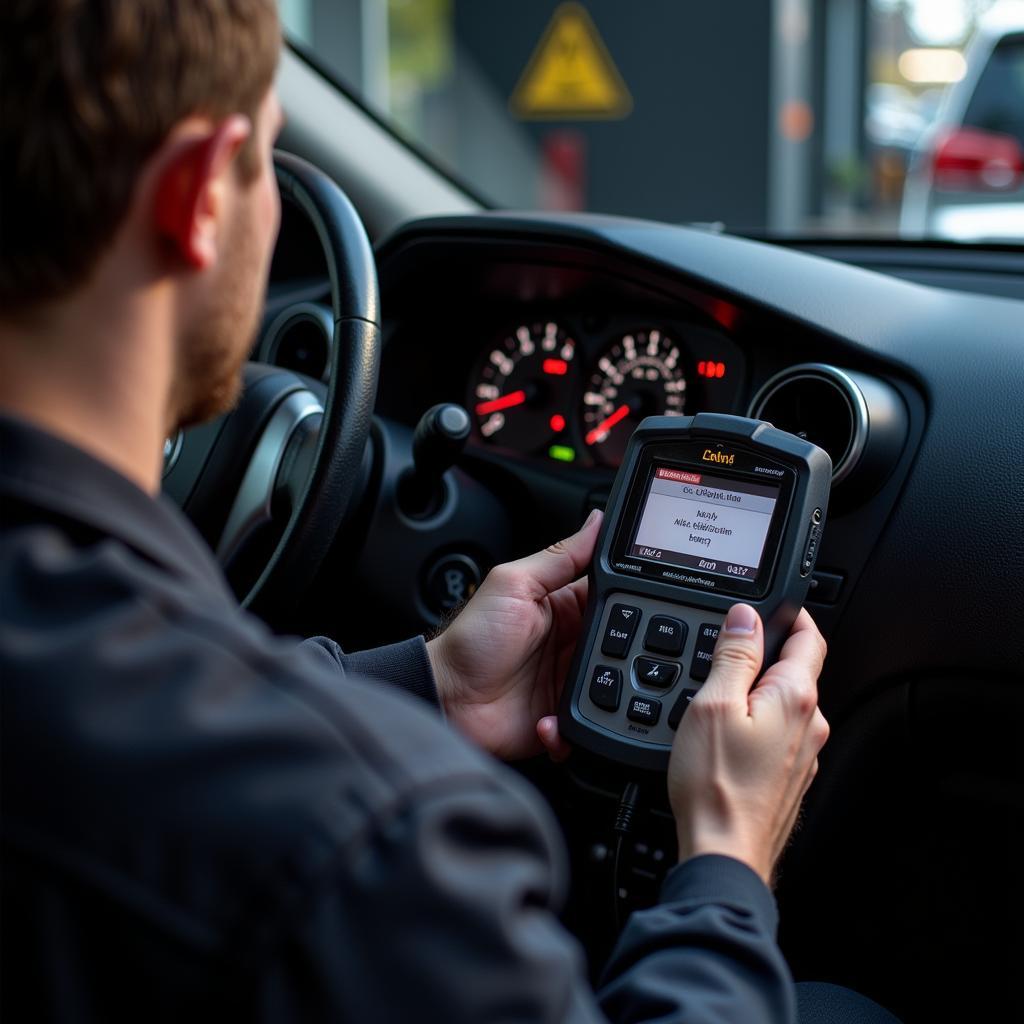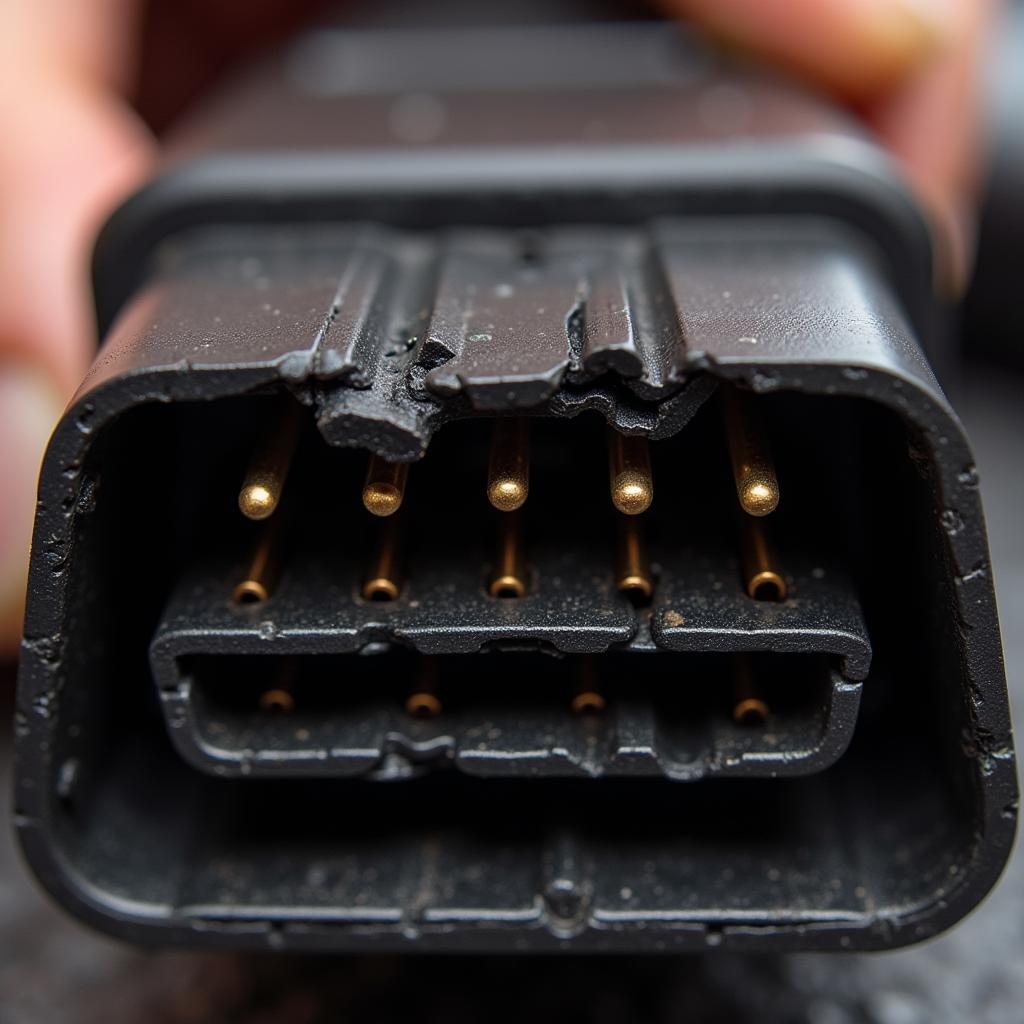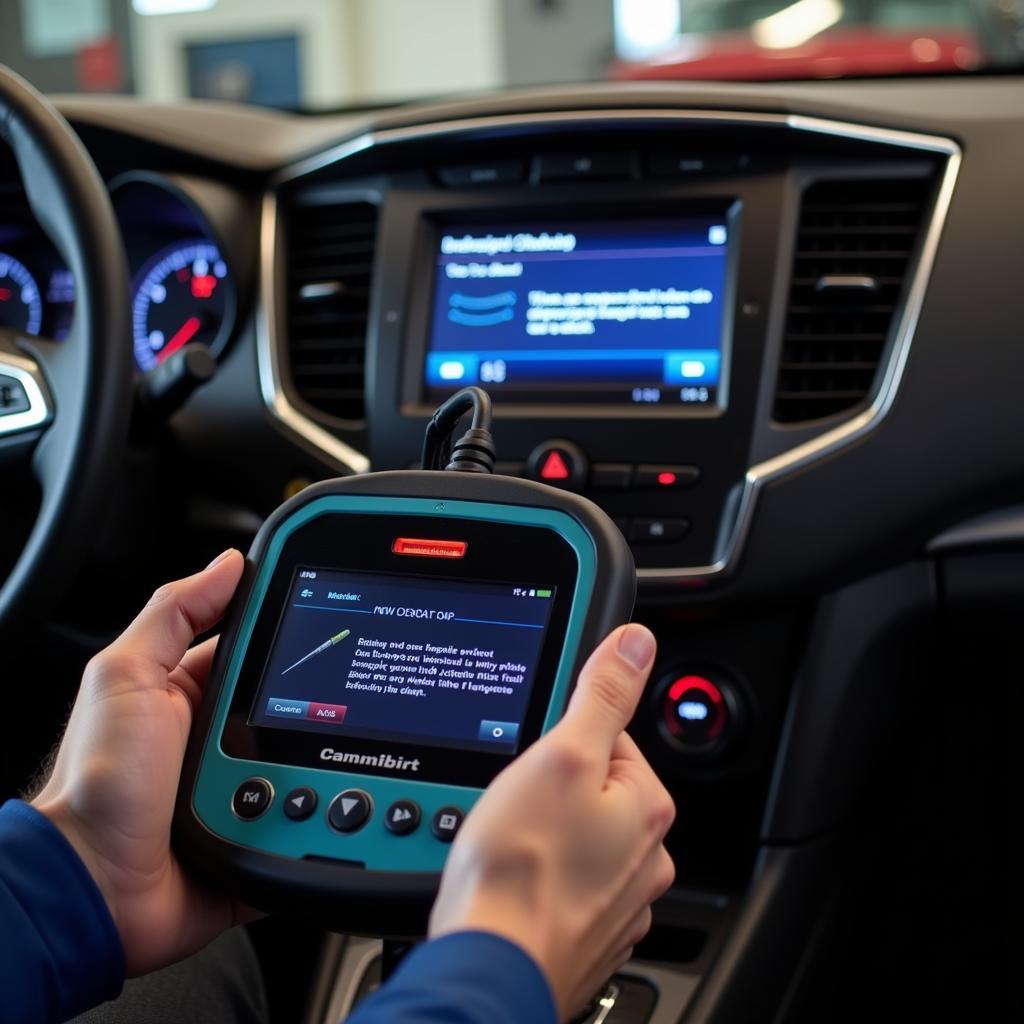A car diagnostic test is an essential part of modern car maintenance. It allows mechanics to communicate with your car’s computer, understand what’s happening under the hood, and pinpoint any issues. However, several factors can hinder a diagnostic test and prevent accurate results. Understanding these factors can save you time, money, and unnecessary headaches.
 Car Diagnostic Failure
Car Diagnostic Failure
Common Culprits: What Can Interfere With a Car Diagnostic?
Here’s a breakdown of the common culprits that can stop a diagnostic test from running smoothly:
1. Faulty OBD-II Port or Connection
The OBD-II port is the gateway to your car’s computer. A loose connection, bent pins, or a damaged port can disrupt communication between the diagnostic tool and the car’s system.
What to Look For:
- Check the OBD-II port for any visible damage, debris, or bent pins.
- Ensure the diagnostic tool’s connector is securely plugged in.
 Damaged OBD-II Port
Damaged OBD-II Port
2. Dead or Weak Car Battery
The diagnostic tool requires power from the car’s battery to function correctly. A dead or weak battery can lead to erratic readings or prevent the tool from establishing a connection.
What to Do:
- If your car battery is dead, jump-start your car or connect it to a battery charger before attempting the diagnostic test.
- If your battery is weak or old, consider replacing it to ensure reliable performance.
3. Aftermarket Electrical Components and Wiring Issues
Installing aftermarket electrical components like stereos or alarm systems can sometimes interfere with the car’s electrical system. This interference can disrupt communication lines and affect the diagnostic test.
What to Consider:
- If you’ve recently installed any aftermarket electrical components and are experiencing diagnostic issues, consult a qualified mechanic to check for any wiring conflicts or interference.
4. Software or Compatibility Issues
Diagnostic tools rely on software to interpret data from the car’s computer. Outdated software or compatibility issues between the tool and your specific car model can result in inaccurate readings or prevent the test from running entirely.
What to Check:
- Always ensure your diagnostic tool’s software is up-to-date.
- Consult the tool’s documentation or manufacturer’s website to confirm compatibility with your car’s make, model, and year.
 Incompatible Diagnostic Tool
Incompatible Diagnostic Tool
5. ECU Problems
The Engine Control Unit (ECU) is the brain of your car’s engine. If the ECU is faulty or malfunctioning, it can disrupt communication with the diagnostic tool and prevent a successful test.
What to Do:
- Diagnosing ECU problems typically requires specialized knowledge and equipment. If you suspect an issue with your ECU, it’s best to consult a qualified mechanic.
Other Factors That Can Impact Car Diagnostics
While less common, these factors can also influence a car diagnostic test:
- Environmental factors: Extreme temperatures or excessive moisture can sometimes affect the performance of electronic components, including diagnostic tools.
- User error: Incorrectly connecting the diagnostic tool, selecting the wrong vehicle profile, or misinterpreting the results can lead to inaccurate conclusions.
Do you want to know [how much a full car diagnostic cost]? Find out more here and understand the pricing before heading to the mechanic.
Expert Insights: What Mechanics Want You to Know
“Many people don’t realize how crucial a healthy battery is for car diagnostics,” says John Smith, a seasoned mechanic with over 20 years of experience. “A weak battery can throw off readings or even prevent the test from running. Always make sure your battery is in top shape.”
“Compatibility issues between diagnostic tools and specific car models are more common than you might think,” adds Sarah Jones, a certified automotive technician. “Using the wrong tool or outdated software can lead to misdiagnoses. Invest in a reputable tool and keep it updated.”
Addressing the Issue: What to Do When a Diagnostic Fails
Facing a failed diagnostic test can be frustrating, but understanding the potential causes is the first step toward a solution. Here’s what we recommend:
- Double-check the basics: Ensure the OBD-II port is clean and undamaged, the diagnostic tool is properly connected, and your car battery has sufficient power.
- Consult a professional: If you suspect a more complex issue like wiring problems, ECU malfunctions, or software incompatibility, it’s best to seek assistance from a qualified mechanic. They have the expertise and equipment to accurately diagnose and address the problem.
Understanding [what a diagnostic test does for a car] can help you appreciate its importance and recognize when a problem might be hindering its accuracy.
FAQs
Can I perform a car diagnostic test myself?
Yes, affordable OBD-II scanners are readily available for DIY car owners. However, interpreting the results accurately requires some automotive knowledge.
How often should I get a car diagnostic test?
It’s generally recommended to have your car diagnosed annually or whenever you experience warning lights or unusual car behavior.
Can a diagnostic test damage my car?
No, a properly conducted diagnostic test using a compatible tool won’t harm your car.
What if the diagnostic test doesn’t reveal any problems, but my car still acts up?
Sometimes, intermittent issues or problems not covered by the standard diagnostic codes might require further investigation by a qualified mechanic.
Unsure [where to get a full diagnostic on your car]? Find out more here about your options and make an informed decision.
Conclusion
While car diagnostic tests are incredibly valuable for identifying and resolving car issues, several factors can interfere with their accuracy. By understanding these factors and taking the appropriate steps, you can ensure a smooth diagnostic experience and keep your car running smoothly.
Have you ever wondered if [using the wrong diagnostic equipment can damage a car’s ECU]? Learn more here and protect your car’s vital components.
Need help with your car diagnostics?
Contact us via WhatsApp: +1(641)206-8880 or Email: [email protected]. Our team is available 24/7 to assist you.

Leave a Reply